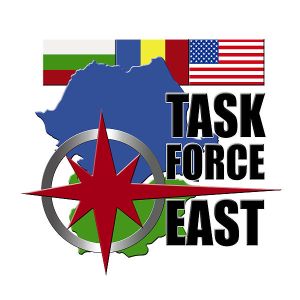
Pentagon Forges NATO Proxy Armies In Eastern Europe
Rick Rozoff
On November 19 and 20 the leaders of 28 North American and European nations, all the major Western military powers and their vassals, will gather in the capital of Portugal for this year’s summit of the North Atlantic Treaty Organization.
Until recently held every other year, NATO summits are now annual events, with the last held in France and Germany in 2009 and the preceding one in Romania in 2008.
Prior to last year’s summit in Strasbourg and Kehl, the first held in two nations, four in a row had occurred in Eastern Europe: The Czech Republic in 2002, Turkey in 2004, Latvia in 2006 and Romania in 2008. None of those host countries, of course, are anywhere near the North Atlantic Ocean. Neither are any of the 12 nations incorporated into the Western military bloc in the past 11 years.
This year’s summit will endorse the Alliance’s first Strategic Concept for the 21st century, a draft of which was crafted by a so-called group of experts led by former U.S. Secretary of State Madeleine Albright and presented in a report entitled NATO 2020: Assured Security; Dynamic Engagement.
Despite NATO referring to itself as a “military alliance of democratic states in Europe and North America” and claiming that all its members’ opinions carry equal weight – as though Luxembourg and Iceland could block or override the U.S., the world’s sole military superpower as its current head of state proudly christened it last December – next month’s summit will be a rubber stamp affair.
Everything the Pentagon and White House demand will be granted, most notably:
The subordination of NATO’s theater interceptor missile initiative, the Active Layered Theatre Ballistic Missile Defence Programme launched in 2005, and the U.S.-German-Italian Medium Extended Air Defense System (MEADS) to a U.S. missile shield structure throughout all of Europe and into the Middle East.
Standard Missile-3 planned for Baltic and Black Sea deployments
The retention of at least 200 U.S. nuclear bombs on air bases in Belgium, Germany, Italy, the Netherlands and Turkey.
A complementary cyber warfare “dome” over the European continent directed by the new U.S. Cyber Command. [1]
The qualitatively accelerated military integration of NATO and the European Union in the aftermath of the Lisbon Treaty entering into force last December 1. A Portuguese adviser to President of the European Commission Jose Manuel Barroso recently affirmed “that the best solution for the enhancement of EU-U.S. relations would be that the European Union (EU) joins NATO.” [2]
The continuation of both components of what are frequently (and artificially) presented as being contradictory: NATO’s founding and core mission – the collective military defense of its member states – and its constantly expanding missions far outside the Euro-Atlantic region, with the war in Afghanistan the prototype and standard of the second.
The Lisbon summit will formalize and extend what has been underway in earnest since NATO’s first war in 1999: The projection of the U.S.-dominated military alliance into an international intervention and occupation force. One that is moving steadily to the east and south of the European continent, which has been unified under NATO and will soon be subsumed under American missile and cyber warfare systems.
Washington and Brussels pretend to protect all of Europe from threats that do not exist – not from Russia, not from Iran and certainly not Syria and North Korea – in exchange for the Pentagon being permitted to move its military personnel and infrastructure along Russia’s western flank from the Baltic Sea to the Black Sea and recruiting the host countries’ youth for wars abroad. What in fact are NATO membership obligations.
Voice of Russia on October 27 stated that “Russia is pressing for a NATO ban on the deployment of substantial numbers of allied forces in the newly-admitted eastern member-nations,” and recounted that last December Foreign Minister Sergei Lavrov handed NATO Secretary General Anders Fogh Rasmussen a proposal for a draft agreement on Russian-NATO relations which “sets a ceiling for the number of troops and weapons allowed for deployment” to the territory of the former Warsaw Pact and even the Soviet Union.
In doing so Lavrov resembled Afghan President Hamid Karzai periodically complaining of the U.S. and NATO killing his nation’s civilians and the Pakistani government publicly bemoaning deadly American drone strikes in its tribal areas. What he urged was correct and important, but he knew that nothing would come of it.
The Pentagon has ensconced itself permanently at bases in Poland, Lithuania, Hungary, Bulgaria, Romania and Kosovo and the hosts’ troops – except for the last-named, a U.S.-spawned stillborn pseudo-state still not a member of the United Nations 32 months after its unilateral declaration of independence – have been dispatched to fight and die in Afghanistan.
In 21st century Europe armed forces exist not for territorial defense but for NATO and European Union deployments overseas. Military bases, facilities and installations are for billeting foreign troops and housing other nations’ aircraft and military equipment, those of the U.S. in particular.
U.S. F-15 Eagle fighter jets are currently patrolling the airspace over the Baltic Sea in Russia’s neighborhood and are stationed at the Siauliai Air Base in Lithuania until the end of the year.
F-15C fighter jet
The first long-term deployment of American anti-ballistic missiles – a Patriot Advanced Capability-3 battery with approximately 100 troops manning it – occurred this year in northeastern Poland near its border with Russia.
Last year Washington launched the world’s first multinational strategic airlift operation at the Papa Air Base in Hungary.
The U.S. Army’s Task Force East operates out of Romania’s Mihail Kogalniceanu Airfield and Babadag Training Area and Bulgaria’s Novo Selo Training Range.
The U.S. continues to occupy the almost 1,000-acre Camp Bondsteel in Kosovo.
Shifting American nuclear bombs from NATO air bases in other parts of Europe to ones in the east like Lithuania’s Siauliai, Estonia’s Amari, Poland’s Swidwin, Romania’s Mihail Kogalniceanu and Bulgaria’s Graf Ignatievo and Bezmer would be the simplest matter in the world – assuming it hasn’t already been done. There would be less (which is to say no) publicity than that which accompanied CIA “black sites” in Lithuania, Poland, Romania and who knows where else on the territory of new NATO states.
A day never passes without U.S. warplanes flying over and warships visiting ports in Eastern Europe, without the Pentagon conducting military training and exercises including live-fire drills and full-scale war games in the region. [3]
Last month the U.S. participated in the Northern Coasts exercise in the Baltic Sea and the Jackal Stone 10 multinational military exercise in Lithuania and Poland, deploying USS Mount Whitney, flagship of the Mediterranean Sea-based Sixth Fleet, for the latter.
Throughout this month U.S. Special Operations Command is conducting training exercises in Hohenfels, Germany with troops from the Czech Republic, Lithuania and Poland “to seamlessly integrate on the battlefield” in Afghanistan.
“During the actual exercise, the Special Forces command element coordinated with conventional forces to provide Quick Reaction Force assistance.” [4]
On October 11 Polish Army Lieutenant General Mieczyslaw Bieniek, recently appointed Deputy Supreme Allied Commander Transformation of the NATO command in Norfolk, Virginia, visited the NATO Joint Forces Training Centre in Bydgoszcz in his homeland to meet with Afghan generals and among other matters discuss “the situation in Afghanistan, current NATO-Afghan cooperation and its future challenges.” [5]
A week later the Polish government extended the deployment of its 2,600 troops in Afghanistan. “The current mission was supposed to end on 13 October but at the government’s request the president decided to prolong it until 13 April 2011.” [6]
As the U.S.-based Polish NATO commander was in Poland, Polish troops were training at the Marseilles National Guard Center, 65 miles from Chicago, with the Bilateral Imbedded Staff Team A7 which will deploy to Afghanistan in January and which “trains through the State Partnership Program with members of the Polish military both here and in Poland to build relationships with coalition members.” [7]
F-15C fighter jets of the sort currently deployed in the Baltic skies arrived at the Campia Turzii Air Base in Romania on October 21 for Operation Golden Lance, “a large-scale exercise involving more than 150 U.S. Air Force personnel, 10 fighter aircraft and dozens of pieces of support equipment.”
The commander of the 493rd Fighter Squadron in charge of the war games stated, “We’re excited to bring our F-15C capability to demonstrate our air superiority skills, train with a formidable NATO ally and integrate our services on offensive counter-aircraft training missions.”
A major objective of the air combat maneuvers is to provide the U.S. Air Force with yet more opportunities to face off against Russian MiG-21s.
The two nations’ air forces “already share a common link,” as Romanian air force units from the Campia Turzii Air Base “have performed the Baltic Air Police mission the 493rd FS is currently performing elsewhere in the world.” [8]
On October 27 the U.S. 86th Airlift Wing and 435th Air Ground Operations Wing completed two weeks of joint exercises in Bulgaria in the context of Thracian Fall 2010, during which American personnel “were able to train and lead more than 1,000 Bulgarian paratroopers to successful landings from U. S. Air Force in Europe’s newest tactical aircraft.”
As to the purpose of such exercises, an American officer present for them said, “We are hoping by them [Bulgarians] being able to observe how we conduct our operations they will use this to enhance their own ability, from paratrooper operations to flying and one day be able to conduct exercises and even assist in future conflicts.” [9]
The future conflicts mentioned – constantly emphasized – are tomorrow’s wars, ones for which the current nine-year-old armed conflict in Afghanistan is a preparation.
Russia’s foreign minister might want to take note of the fact.













